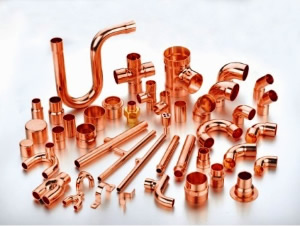
Material selection lays the foundation for the performance and longevity of forged parts. The chosen alloy must withstand the intended operating conditions, including temperature, pressure, corrosion, and mechanical stress. Additionally, factors such as machinability, weldability, and cost-effectiveness must be considered to ensure the overall feasibility of the manufacturing process. With a myriad of alloys available, including steel, aluminum, copper, and their various compositions, understanding their characteristics and suitability for different applications is paramount.
Steel is a popular choice for forged parts due to its exceptional strength, toughness, and versatility. Various steel alloys, such as carbon steel, alloy steel, and stainless steel, offer distinct properties suitable for different applications. Carbon steel, for instance, is prized for its high tensile strength and affordability, making it ideal for structural components in machinery and automotive parts. On the other hand, stainless steel alloys, with their superior corrosion resistance, find widespread use in marine, aerospace, and chemical processing industries.
Aluminum Alloys
Aluminum alloys are prized for their lightweight properties, high corrosion resistance, and excellent thermal conductivity. These alloys are commonly used in aerospace, automotive, and consumer electronics industries, where weight reduction and durability are paramount. Forged aluminum parts exhibit superior strength-to-weight ratios, making them ideal for applications requiring lightweight yet robust components, such as aircraft fuselages, automotive engine components, and bicycle frames.
Copper Alloys
Copper alloys, renowned for their exceptional electrical and thermal conductivity, find niche applications in electrical and electronic industries. Brass and bronze, two common copper alloys, offer excellent machinability, corrosion resistance, and aesthetic appeal, making them suitable for decorative and functional components in architecture, plumbing, and musical instruments. Additionally, copper-nickel alloys are favored in marine and offshore applications due to their resistance to seawater corrosion and biofouling.

Operating Conditions: Assess the temperature, pressure, chemical exposure, and mechanical stress the part will encounter during service.
Mechanical Properties: Evaluate the required strength, hardness, toughness, and impact resistance based on the application's functional requirements.
Corrosion Resistance: Consider the susceptibility of the alloy to corrosion, particularly in aggressive environments such as marine, chemical, or industrial settings.
Cost and Availability: Balance the performance requirements with cost considerations, ensuring the chosen alloy is both economically viable and readily available.
Whether opting for steel, aluminum, copper, or their alloys, understanding the properties and applicability of each material is essential for achieving optimal results. By carefully evaluating operating conditions, mechanical properties, corrosion resistance, and cost considerations, you can choose the right alloy to meet the specific requirements of their applications.
For high-quality forged parts tailored to your specifications, pls contact us.